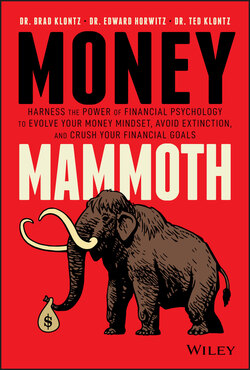Читать книгу Money Mammoth - Ted Klontz - Страница 39
CHAPTER 3 Your Children
ОглавлениеHow far would you go to protect the life of a close family member who was in mortal danger? If you had no other choice, would you kill to protect them? If you are a parent, how far would you go to protect your own child? How far would you go to protect a child's emotional well-being? How far would you go to give your child a leg up in the world? While it is easy to criticize others for going too far with their children, it's important to recognize that the desire to help children—especially our own children—is hardwired and is in a large part responsible for the survival of humanity. Human offspring are immobile, defenseless, and totally dependent for years after they are born.
We are wired to perpetuate our genes. This is the origin of sexual behavior and the natural protective instincts we all have. Even if we are not parents, we are wired to feel empathy and protective toward children. Childlike features trigger a protective impulse in most of us. It is why you see total strangers often immediately soften, smile, or otherwise change their demeanor when a small child makes eye contact with them. The typical social distance and emotional reservation will often instantly melt away, and many people will tilt their heads, lean over, or even squat down to engage a child—even when they are total strangers. When it comes to our own offspring or that of close family members of friends, this instinct is intensified.
If your child, or a close family member, was in mortal danger, would you kill to save him or her? The majority of human beings have a strong inhibition toward killing other human beings. However, when the lives of our family members are threatened, this inhibition can be overridden. This is one of the reasons that in training soldiers, the military works hard to facilitate the creation of a family. The soldiers in a platoon, for example, consider each other brothers and sisters. Many accounts from combat reveal that soldiers are able to override their inhibition to killing not for patriotism or political causes, but out of a desire to protect their brothers and sisters.
So while we are prone to self-preservation, this impulse can be easily suppressed when we feel like the lives and/or well-being of our family members are threatened—especially our children. This natural impulse helps explain a variety of destructive financial behaviors. They are all done from a place of love, worry, and concern, but they can backfire quite dramatically. It is important to be aware of these impulses so that we can engage our analytical brains to think through the long-term consequences of our behaviors.
